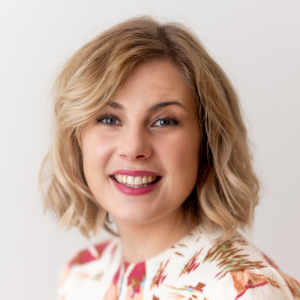Postgraduate Researcher Brunch and Learn: Neurodiversity in Higher Education
Alexandar Palmer, Postgraduate Researcher in Natural, Mathematical & Engineering Sciences
In April 2025, as part of the project funded by King’s Faculty of Natural, Mathematical & Engineering Sciences (NMES) Research Culture grant, I (Alexander Palmer, NMES postgraduate researcher at King’s) organised an in-person postgraduate researcher (PGR) brunch on the topic of neurodiversity in Higher Education [1]. The event invited other doctoral researchers to learn more about the online KEATS (King’s E-Learning and Teaching Service) course Diverse Brains, Inclusive Education: Understanding Neurodiversity in HE, which I co-created (working with a diverse group of students and staff). PGRs were also encouraged to ask questions and share their experiences in a supportive environment. An NMES wellbeing advisor also attended the event to offer support, as some of the experience of being a neurodivergent PGR can be distressing and uncomfortable.
Why does the KEATS course exist?
The Diverse Brains course was developed following research on experiences of assessment and feedback for neurodivergent students at King’s. National Student Survey data identified that students reporting a non-learning disability had the lowest rates of satisfaction with their course overall, low rates of agreement with statements about clear marking criteria and helpful feedback, and were the least likely to feel part of a community.
We also know from ONS statistics on disability that neurodivergent people are disproportionately disadvantaged in education – for example, 18% of people with a mental illness and 20% of autistic people hold a de
gree as their highest qualification, compared with an overall average of 25% across all disabled people, and 43% of non-disabled people. [2] This aligns with literature on assessment and feedback, which suggests that disabled and marginalised students’ diverse needs are rarely met. [3,4]
In addition, the needs of PGRs are often not accommodated within university support systems. Multiple postgraduate researchers described trying to access accommodations, only to find that that supports were primarily designed for undergraduate students doing closed-book exams, with little relevance for research degrees.
How did the event go?
The Brunch event had a moderate-size audience, but that made it easier to have conversations as a whole group rather than lots of smaller discussions. Event facilitators shared their own experiences as part of the introduction to the event, which was positively received and acted as a successful conversation starter; students asked us about what had worked for us, what had not, whether we would do things differently, and from there discussed their own experiences or (in some instances) asked for advice.
Having the wellbeing advisor booked also had the unintended positive effect of advertising the course to a member of the wellbeing team, creating another space where the course can be advertised and recommended to students.
What’s next?
Students in attendance discussed supervision extensively, noting the importance of having confident staff who are familiar with support processes, because otherwise this becomes more work for disabled and/or neurodivergent PGR students. The need for sustainable training was also highlighted by attendees; having a one-off seminar or a training course may not be sustainable and is unlikely to lead to longer-term change. From this we are creating scenarios to be integrated into supervisor training that focus on the experiences of neurodivergent PGRs to improve support and supervision.
Useful resources
Diverse Brains course (hosted by King’s Doctoral College)
Staff Intro to Neurodiversity course (Workrite)
Creating a neuroinclusive workplace (EQU217, SkillsForge)
GTA – Inclusive Teaching Workshop: Towards a Liberated Classroom
GTA – Inclusion & Accessibility: Disabilities and Neurodiversities (SkillsForge)
References
- In this post, neurodivergent is used as defined by Dr Nick Walker, to mean having a mind that functions in ways which diverge significantly from the dominant societal standards of “normal.” Neurotypical is the antonym, or opposite, meaning someone who functions within dominant societal standards. Neurodivergence is the state of being neurodivergent. The terms neurodivergentand neurodivergence were coined in the year 2000 by Kassiane Asasumasu, a multiply neurodivergent neurodiversity activist. Not every individual who is autistic, or has ADHD, or has mental health conditions, will describe themself as neurodivergent, or as disabled; individuals’ language choices should be followed.
- Office for National Statistics. (2021). Outcomes for disabled people in the UK: 2021. In Office for National Statistics Report: Outcomes for disabled people in the UK
- McArthur, J. (2016). Assessment for social justice: the role of assessment in achieving social justice. Assessment and Evaluation in Higher Education, 41(7), 967–981. https://doi.org/10.1080/02602938.2015.1053429
- Nieminen, J. H. (2022). Assessment for Inclusion: rethinking inclusive assessment in higher education. Teaching in Higher Education, 1–19. https://doi.org/10.1080/13562517.2021.2021395


